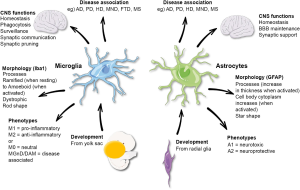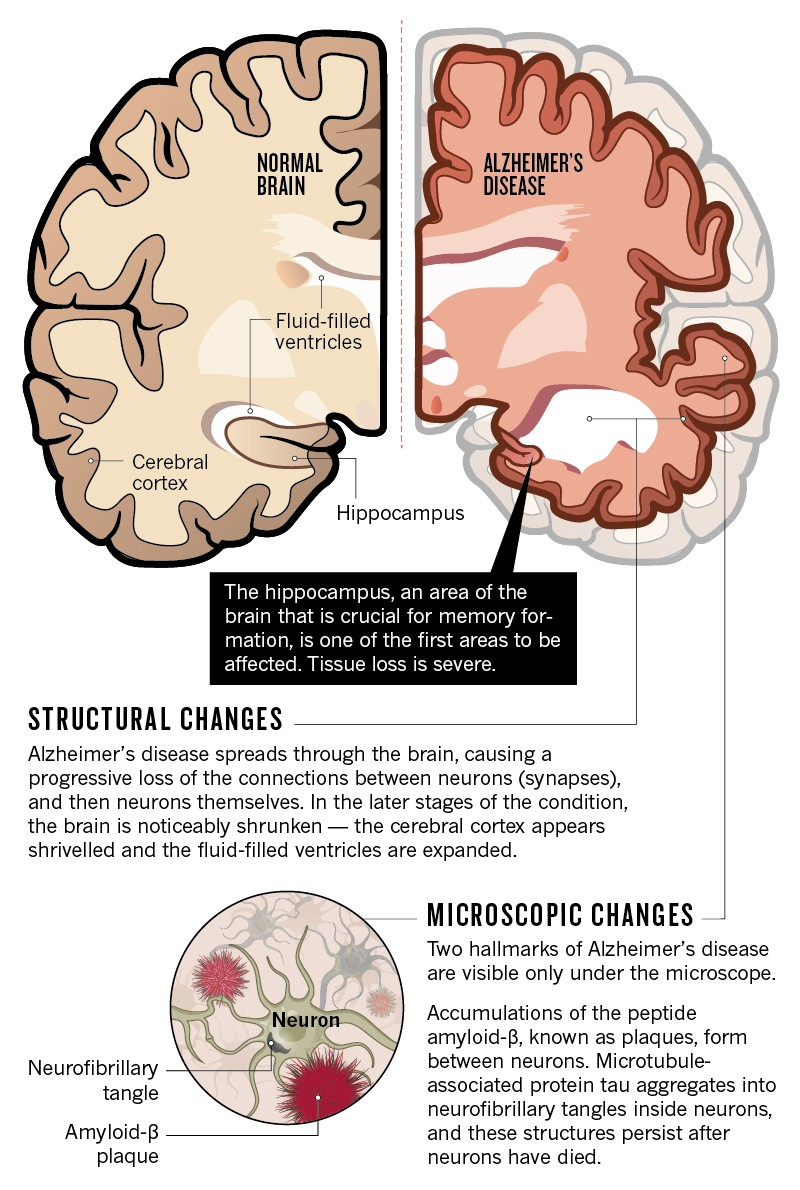Age-related brain diseases, including conditions such as stroke, dementia, and late-life depression, are becoming increasingly prevalent in our aging population. Recent research from Harvard-affiliated Mass General Brigham indicates that modifying certain risk factors can significantly diminish the likelihood of developing these devastating disorders. The study identified 17 modifiable risk factors, highlighting the importance of lifestyle changes in dementia prevention and overall brain health. By addressing elements like high blood pressure, poor diet, and lack of social engagement, individuals can take proactive steps towards safeguarding their cognitive well-being. These findings not only shine a light on the interconnectedness of these age-related brain diseases but also underscore the potential for targeted interventions to reduce their incidence and enhance quality of life for seniors across the globe.
In the context of cognitive health, age-related brain diseases encompass various conditions that significantly impact the elderly, including cognitive decline and mood disorders. This umbrella term includes ailments such as strokes and forms of dementia, which are major concerns in geriatric health. Researchers emphasize that factors contributing to these conditions, such as lifestyle choices and chronic health issues, play a critical role in brain health. By identifying these interconnected risk determinants, the study paves the way for innovative prevention strategies aimed at mitigating dementia and similarly related disorders. Understanding the broader spectrum of cognitive issues associated with aging can help in developing effective interventions and fostering resilience in brain health over time.
Understanding Age-Related Brain Diseases
Age-related brain diseases, including dementia, stroke, and late-life depression, significantly impact millions of individuals worldwide. These conditions are often interconnected, sharing many common risk factors. Understanding these diseases is crucial as the aging population continues to grow, and the need for effective prevention and treatment strategies becomes more urgent. The interplay of genetic, lifestyle, and environmental factors creates a complex web that researchers aim to untangle to enhance brain health outcomes.
Dementia, in particular, is characterized by a decline in cognitive function, impacting memory, thinking, and social abilities. Stroke, on the other hand, occurs when the blood supply to the brain is interrupted, leading to serious neurological damage. Late-life depression can manifest as a feeling of hopelessness, loss of interest, and affect the overall quality of life. These diseases not only affect the individuals but also place significant emotional and financial burdens on families and the healthcare system.
Frequently Asked Questions
What are the modifiable risk factors for age-related brain diseases?
Modifiable risk factors for age-related brain diseases such as stroke, dementia, and late-life depression include high blood pressure, diabetes, kidney disease, high cholesterol, and lifestyle factors like diet, alcohol use, physical inactivity, and smoking. Addressing these factors can significantly lower the risk of developing these conditions.
How can dementia prevention be achieved through lifestyle changes?
Dementia prevention can be achieved by adopting a healthy lifestyle that includes regular physical activity, a balanced diet, maintaining a healthy weight, managing blood pressure and cholesterol levels, and avoiding smoking and excessive alcohol consumption. Engaging in social activities and cognitive exercises may also support brain health.
What role does stress play in the risk of age-related brain diseases?
Chronic stress is a significant risk factor for age-related brain diseases, contributing to the development of dementia and late-life depression. Managing stress through techniques such as mindfulness, exercise, and social support can help lower the risk of these conditions.
How does physical activity influence the risk of stroke and dementia?
Physical activity plays a crucial role in reducing the risk of stroke and dementia. Regular exercise improves blood circulation, helps manage weight, lowers blood pressure, and boosts mental health, all of which contribute to better brain health and lower risks of age-related brain diseases.
What is the connection between late-life depression and age-related brain diseases?
Late-life depression is closely linked to age-related brain diseases like stroke and dementia. Untreated depression can increase the likelihood of developing these conditions, while managing depression through therapy and lifestyle changes can improve overall brain health and reduce risk.
Can diet really impact brain health and the risk of age-related diseases?
Yes, diet has a profound impact on brain health and the risk of age-related diseases such as dementia and stroke. A diet rich in fruits, vegetables, whole grains, and healthy fats can support brain function, while a poor diet can increase the risk of cognitive decline and depression.
Is there a way to assess brain health to prevent dementia and stroke?
Yes, the Brain Care Score is a tool developed by researchers to measure efforts to protect brain health. It provides personalized guidance on how to improve brain health by focusing on modifiable risk factors, helping to prevent age-related brain diseases like dementia and stroke.
What lifestyle changes can reduce the risk of dementia and improve brain health?
Lifestyle changes that can reduce the risk of dementia and improve brain health include increasing physical activity, eating a heart-healthy diet, avoiding tobacco and excessive alcohol, getting quality sleep, managing stress effectively, and engaging in social and cognitive activities.
| Risk Factor | Associated Conditions | Impact |
|---|---|---|
| Diabetes | Stroke, Dementia, Depression | Increases risk across conditions |
| Blood Pressure | All three conditions | Major risk factor |
| Kidney Disease | Stroke, Dementia, Depression | Can increase risk significantly |
| Fasting Plasma Glucose | Stroke, Dementia | Linked to high blood sugar levels |
| Total Cholesterol | Stroke, Dementia | Higher levels increase risk |
| Alcohol Use | Stroke, Dementia, Depression | Excessive consumption raises risk |
| Diet | All three conditions | Poor diet contributes to development |
| Hearing Loss | Dementia | Modifiable risk factor |
| Pain | Depression | Chronic pain increases risk |
| Physical Activity | All three conditions | Lack of activity raises risk |
| Purpose in Life | Depression | Lack contributes to depression |
| Sleep | Depression | Poor quality increases risk |
| Smoking | Stroke, Dementia, Depression | Major risk factor |
| Social Engagement | Depression | Lack increases risk |
| Stress | Depression | Chronic stress increases risk |
| Obesity | Stroke, Dementia, Depression | Increases risk across conditions |
Summary
Age-related brain diseases such as stroke, dementia, and late-life depression are increasingly recognized for their shared risk factors. Recent research has identified 17 modifiable factors that can lower the risk of these conditions, highlighting the significance of lifestyle changes. By managing factors like blood pressure, diet, and physical activity, individuals can substantially reduce their likelihood of developing these interconnected diseases. The findings emphasize the potential for preventive measures to lessen the burden of age-related brain diseases and advocate for future studies to enhance our understanding and management of these critical health issues.









